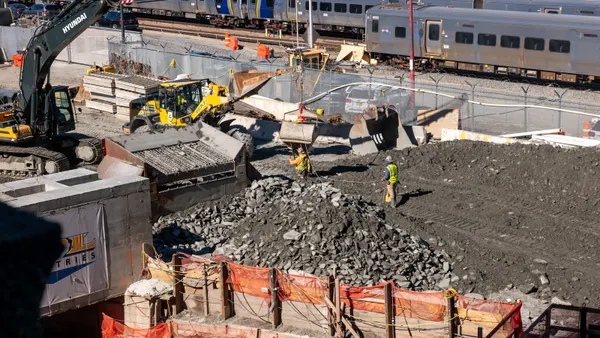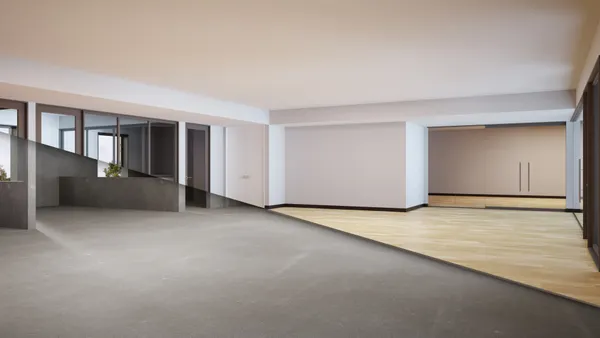Dive Brief:
- Decommodifying housing could help reduce U.S. housing instability, a problem that’s gotten worse in recent years and disproportionately affects people of color, low-income people and renters, panelists said during a March 23 webinar hosted by the Urban Institute.
- To realize housing justice, “we need protective policies in place, [and] we need to make it more difficult for [investors] who seek to flip our communities and increase housing insecurity,” Damien Goodmon, founder and board secretary-treasurer of the Liberty Community Land Trust in Los Angeles, said during the panel.
- To support these efforts, panelists said local policymakers could promote inclusionary zoning policies, collect impact fees on new development and enact tenant right-to-purchase rules, among other steps.
Dive Insight:
Housing justice advocates are calling for the U.S. to decommodify its housing stock — a process that would prioritize housing’s role in promoting collective well-being and economic mobility over its role as an individual financial asset — to ensure affordable and safe housing for all. To do so, they want more investment in public housing, social housing and shared equity models such as community land trusts, where residents collectively own property through an independent body, panelists said during the webinar.
Decommodifying housing “would be bringing that sense of ownership back to neighbors, blocks, to the place — and ensuring that some of these investments we are making are actually being routed locally to the benefit of the community,” Emily Thaden, vice president of national strategy at the Grounded Solutions Network, a national inclusive housing organization, said during the panel.
There is some evidence that these models work, including in Portland, Oregon, where a community investment trust has enabled low-income residents to buy shares in a local strip mall. But given the lack of widespread investment in decommodified models so far — they make up less than 1% of housing in the U.S. — it’s still unclear what broad-scale programs would look like, including how they should be built and managed, as well as what level of overall U.S. housing would need to be decommodified to accomplish housing justice advocates’ goals, said Gabi Velasco, a policy analyst at Urban’s Research to Action Lab.
The momentum is there, though. In Los Angeles, the Liberty Community Land Trust acquired 10 properties over the last 18 months, including commercial businesses and single-family homes to convert into triplexes for low-income residents, Goodmon said. He said the group aims to become the country’s largest community land trust in a bid to “stabilize Black communities” and “address systemic inequality in America in its most blatant form” — access to safe, affordable housing.
“The concept of collective ownership of land is not foreign to anyone — we all know what a condominium is,” Goodmon said. The group’s biggest challenge is not preparing low-income residents to buy homes, though — it’s getting the public and banks “to believe that [is] something that we should be investing in.”
Even so, panelists said there’s a lot state and local governments can do to support housing justice efforts: They can promote inclusionary zoning policies, enact reforms to increase local affordable housing stock, collect fees on new development to offset the impact on public infrastructure, support first-time home-buyers and grant tenants the right of first refusal to match offers when a landlord is considering selling their property.
“We need to have a continuum of housing, to move people from public housing into affordable rental and into home ownership,” Thaden said. “And then we are actually bringing up and serving more people with the affordable housing we have.”












